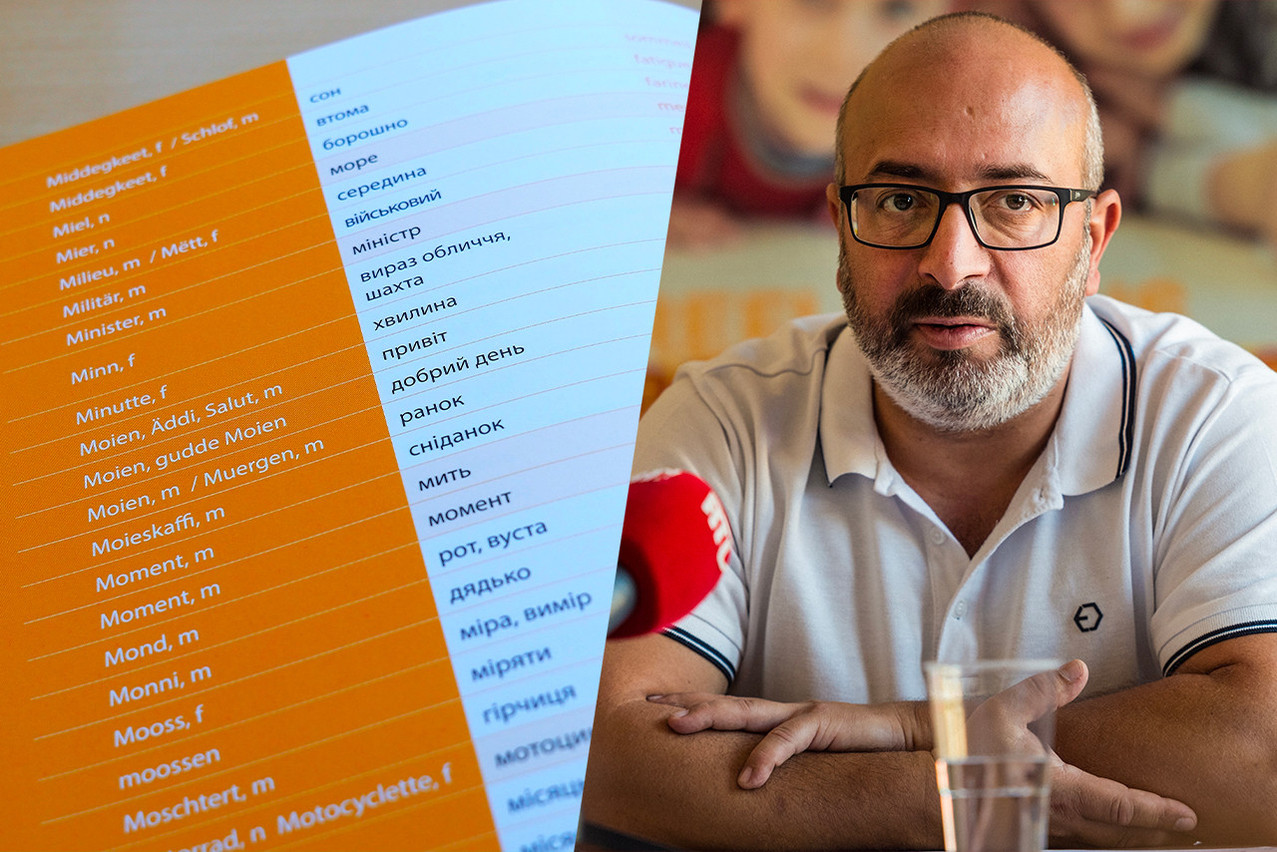The Association for the support of immigrant workers (Asti) has just published its Ukrainian-Luxembourgish-French dictionary. It is intended for Ukrainian refugees as well as for people hosting them or interested in their language. Between 1 March and 31 October 2022, 4,774 Ukrainians applied for temporary protection in the grand duchy. Asti political director Sérgio Ferreira talked to Delano’s sister publication Paperjam about the tool.
What work was done to produce these 260 pages?
Sérgio Ferreira: In 2016, we edited an Arabic dictionary, when we had many refugees from Syria. This was followed by the Farsi/Dari edition for people from Afghanistan and Iran, and then a Tigrigna version for Eritreans. So it seemed natural to go down this road when the war started in Ukraine.
The person who had coordinated the first dictionaries became available, assisted by three Ukrainian volunteers. One had been there for four years and speaks Luxembourgish. They used the words from previous editions, adding words that seemed interesting. The ministry of education took care of the layout and printing.
You producted 5,000 copies. How much did it cost?
I don't know the exact figures. We saw during a visit to adult education classes that these dictionaries are very useful and appreciated.
Could more copies be printed?
Yes. But we hope things will calm down.
How many copies did you print of the previous ones?
2,500 for the Arabic version, 1,500 for the other two.
Why French and Luxembourgish, but not English?
At an international level, there are already quite a few English dictionaries. We chose the national and everyday languages.
Anything that facilitates communication is not an expense but an investment.
How many institutions have received copies?
About 30 (high schools with Ukrainian students, adults learning French, at the primary reception centre, social offices, associations in contact with refugees, etc.).
It is also possible to request it from the ministry of education (sfa@men.lu). Is it free of charge?
Yes, there are no strict conditions. In a country like Luxembourg, we have many languages written and spoken every day. Anything that facilitates communication is not an expense but an investment.
Language being a vector of integration...
Perhaps the first and most important one, beyond work. In order to work, you have to speak languages, which is why learning them is fundamental.
The dictionary contains 1,500 words. Will it be expanded?
This is not envisaged. We are looking into the possibility of working on a Braille version with other associations.
What other actions does Asti take to integrate via the language?
We dropped the courses, because it costs money and there is no public funding. So we have refocused on practical activities. We have a pool of 300 people available, online or by phone, for dialogue sessions two or three times a week. In most cases, people end up meeting.
With funding from the labour ministry and the European Social Fund, we have also launched language courses targeted at jobs in short supply.
The Ministry of Education's Adult Education Service also offers language integration courses for applicants and beneficiaries of national protection. They have 1,339 adult participants, the majority from Syria (447), Ukraine (306), Eritrea (253) and Afghanistan (81).
This story was first published in French on . It has been translated and edited for Delano.

